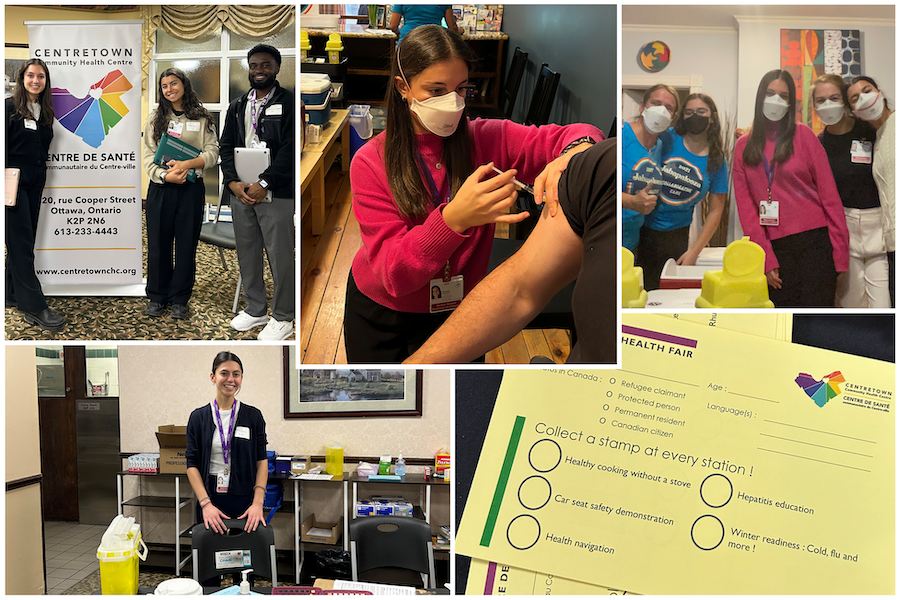– Lauren Backstein, first-year medical student and SHIP Clinic participant
For students in the early days of medical school, providing care to real people can seem frustratingly far off—something that will only come after years hard study. At the same time, the needs of the community are often painfully apparent, and acute. It can be difficult to reconcile the desire to help now with the long road of training ahead.
For Nicole Wisener and Emily Liang, second-year medical students at the Faculty of Medicine, the challenge became a powerful motivator and pushed them to find an innovative way to make a difference. Together, they created the Student-led Health Initiative Partnership (SHIP) Clinic to offer first- and second-year students real-world exposure to community health realities. This opportunity allows them to develop early clinical skills while fostering a strong sense of social accountability.
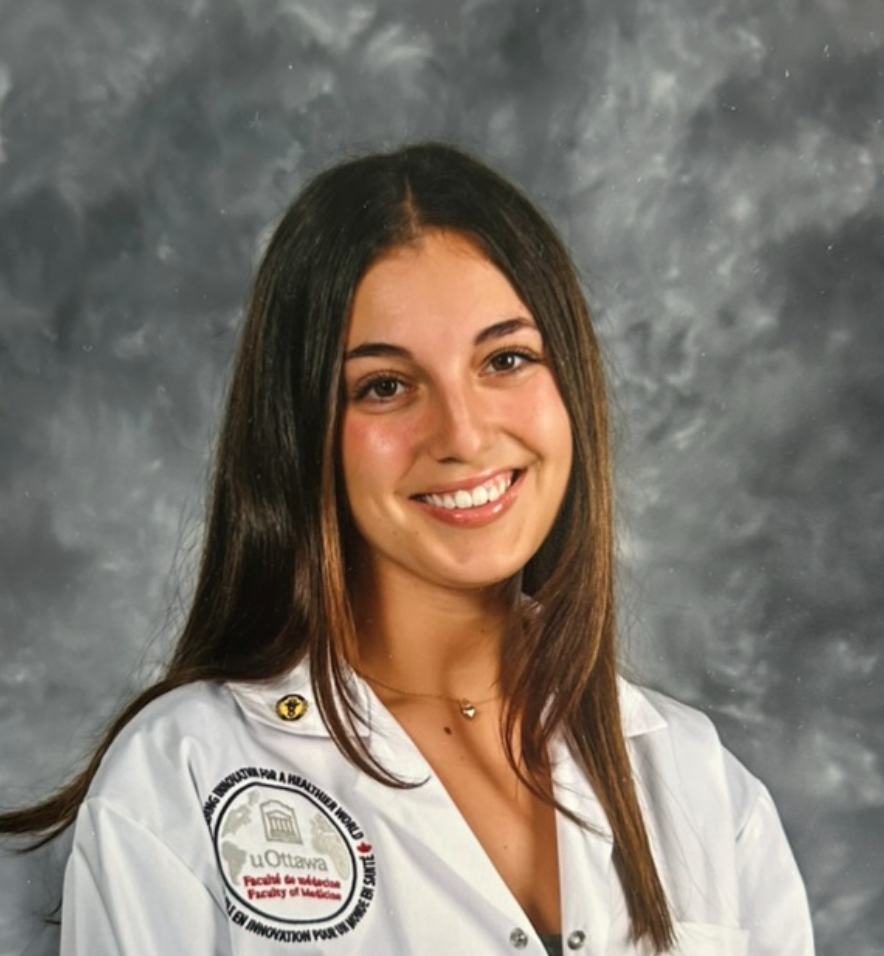
“It’s a great extracurricular activity for students who are passionate about social accountability and community engagement in Ottawa — and for building more clinical skills.”
Nicole Wisener
— Second-year medical student and co-founder of the SHIP Clinic
“It’s a great extracurricular activity for students who are passionate about social accountability and community engagement in Ottawa — and for building more clinical skills,” explains Nicole. “We don’t always get that exposure in our first two years of medical school, and sometimes not at all if we aren’t placed in community health centres.”
“We saw a real need in the community — people being left on their own while facing complex challenges — and a strong desire among our peers to help in a meaningful way,” adds Emily. “We were learning about social determinants of health in class, but there were very few opportunities to connect that to human experience or action. The SHIP Clinic was born to bridge that gap.”

“We saw a real need in the community and a strong desire among our peers to help in a meaningful way.”
Emily Liang
— Second-year medical student and co-founder of the SHIP Clinic
Supported by the Faculty of Medicine’s Office of Social Accountability, the SHIP Clinic officially launched in January 2025. It is grounded in partnerships with key community organizations in Ottawa, including the Centretown Community Health Centre, the Carlington Community Health Centre, the Eastern Ottawa Resource Centre, and Ottawa Inner City Health (OICH). Together, they identified ways for students to meaningfully support local services in a respectful and sustainable manner.
Seventeen medical students took part in the SHIP Clinic during its inaugural year, contributing their time and energy to these partnerships.
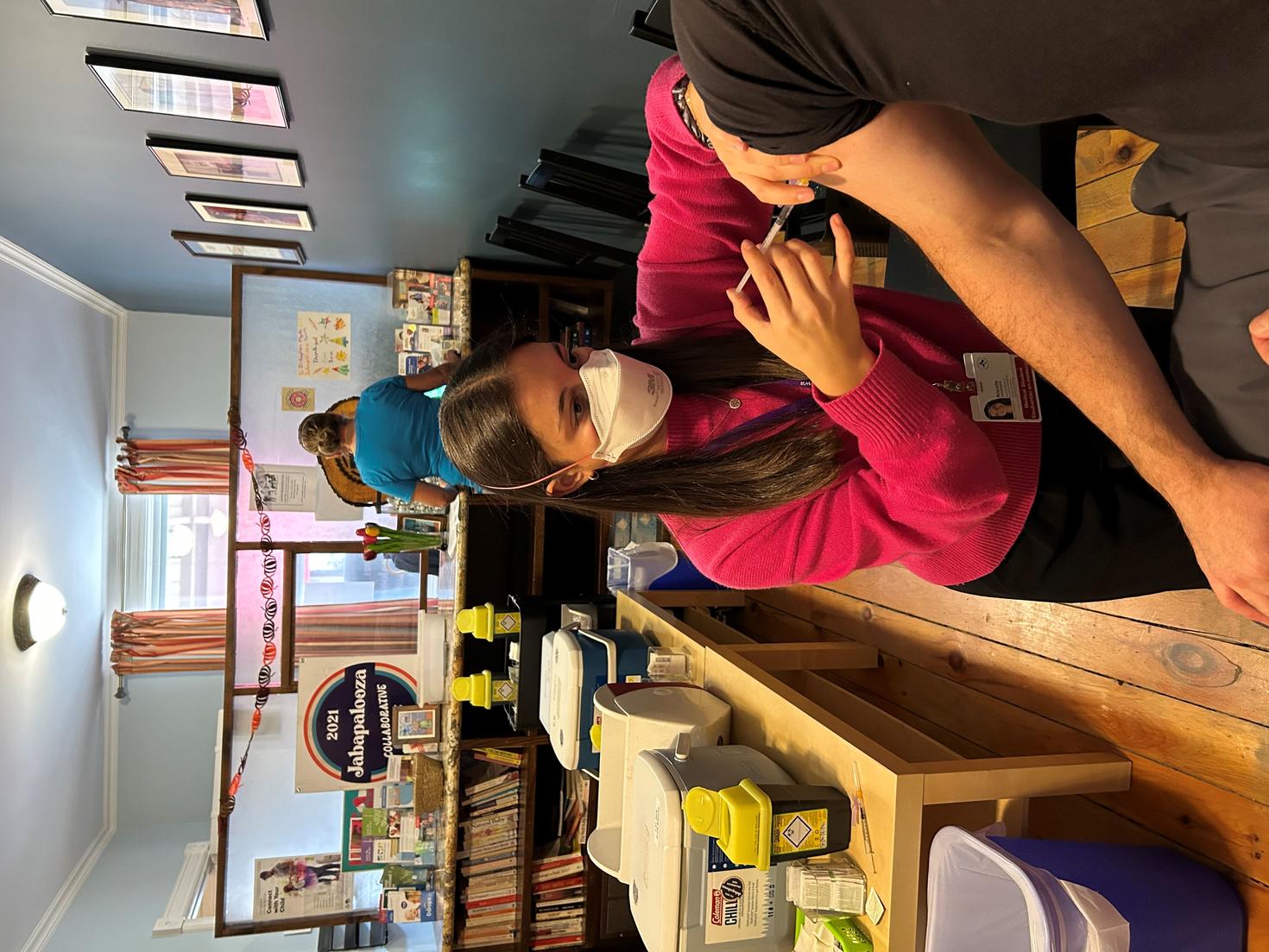
Each week, SHIP Clinic students are placed with these partners and participate in a range of activities: wellness check-ins for residents in supportive housing, newcomer intake assistance, screening and vaccinations, and community needs assessments. Trained students are also paired with clients in supportive housing for weekly mental health counseling sessions, under the supervision of an OICH physician.
“The SHIP clinic allows our students to put their classroom learning into practice while meeting community needs as identified by the community itself.” emphasizes Dr. Laura Muldoon, Director of the Medicine and Society curricular pillar in Undergraduate Medical Education. “It is truly a mutually beneficial relationship.”
The program incorporates hands-on experience with an active learning approach that places strong emphasis on the human dimension of care. “This experience reminded me that human connection is just as essential as any clinical data,” says medical student Hollie Davies. “A physician said to me about her patients, ‘These are my people… I look out for them.’ Those connections — invisible but powerful — are at the heart of medicine.”
On site, students learn from community leaders and physicians who expose them to culturally appropriate care and the unique health challenges faced by underserved populations such as newcomers to Canada, individuals in supported housing, people living with addictions, and those in shelters.
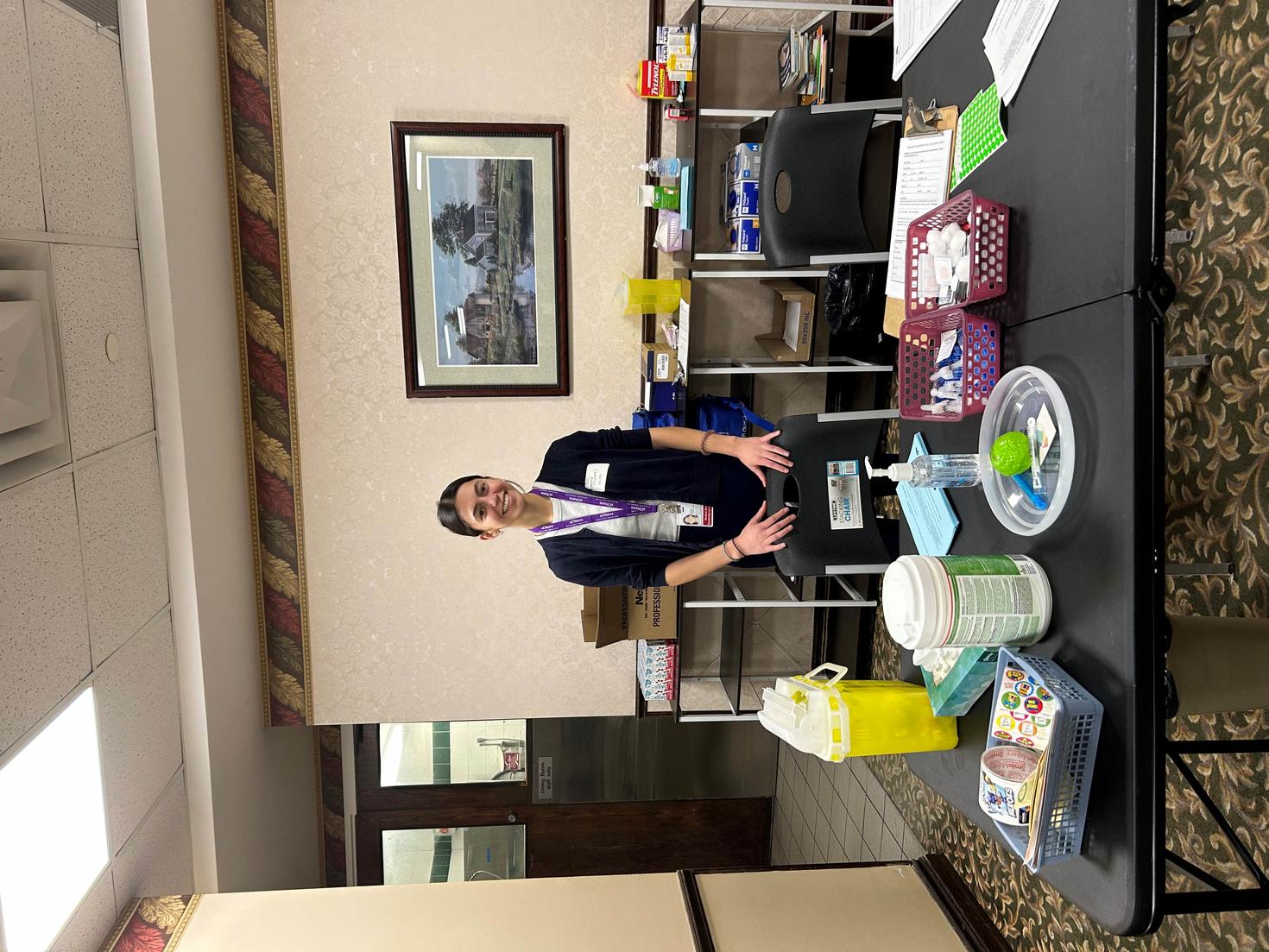
Dr. Lissa Bair, Global Health PGY3 Lead in the Department of Family Medicine and clinical lead at Centretown Community Health Centre, sees the clinic’s impact firsthand: “Each student asks thoughtful questions, brings genuine curiosity, and shows real compassion for our patients. It’s a joy to introduce them to refugee health — a field that is demanding, deeply enriching, and often unexplored during medical training. This initiative provides a rare and meaningful opportunity to nurture more reflective, compassionate physicians who understand social realities.”
Dr. Simon Hatcher, Medical Director of Mental Health at Ottawa Inner City Health, also highlights how the initiative benefits both patients and students: “Having medical students providing counselling to people who have been on the margins of society is a win win – the clients get help they otherwise wouldn’t get; the students get practice in counselling and early exposure to problems they may not encounter in hospitals; and for me it means I can stretch myself further where an hour of supervision a week results in two hours of care for the clients.”
Another SHIP Clinic participant, medicine student Angélique Cléroux, agrees: “We often assume that just providing a resource will fix a problem, but the reality is so much more nuanced. Understanding our patients in a holistic way means also ensuring the services we offer are actually accessible to them.”
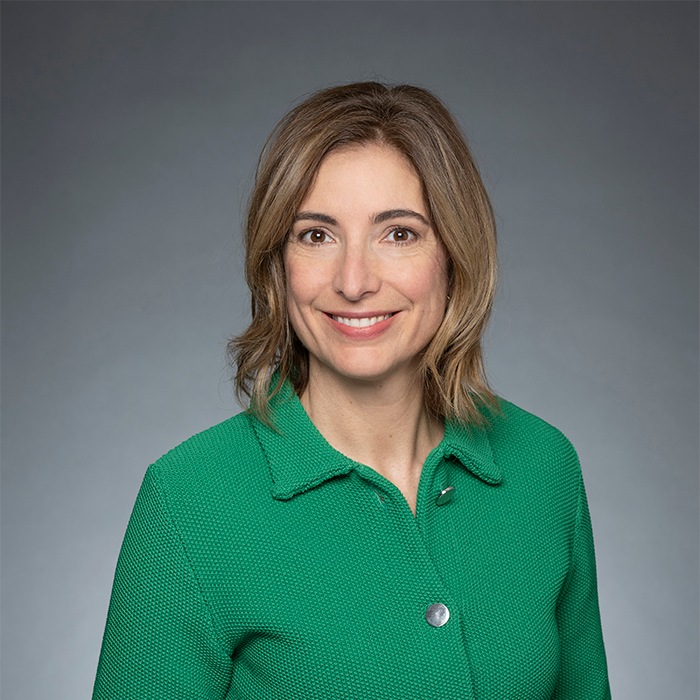
“The SHIP Clinic students have really initiated and designed their own learning aligned with the mandate of the Faculty to strengthen community partnerships.”
Dr. Claire Kendall
— Associate Dean, Social Accountability
Dr. Claire Kendall, Associate Dean of Social Accountability, sees the SHIP Clinic as a major asset for medical student training. “We know students thrive when then can learn with and from communities, and that doing so increases the likelihood they will serve these communities in future practice” she explains. “The SHIP Clinic students have really initiated and designed their own learning aligned with the mandate of the Faculty to strengthen community partnerships.”
Driven by an innovative student vision and supported by the Faculty’s strong commitment to social accountability, the SHIP Clinic is set to expand in fall 2025, offering even more students a valuable opportunity for active, community-based learning.
“Going forward, we will leverage this student-led initiative to strengthen our social medicine curriculum” says Dr. Kendall.
Support the Faculty of Medicine today!
Use the “Other designation” field on our online donation form and indicate your support towards the 'Social Accountability Initiatives at the Faculty of Medicine'.
